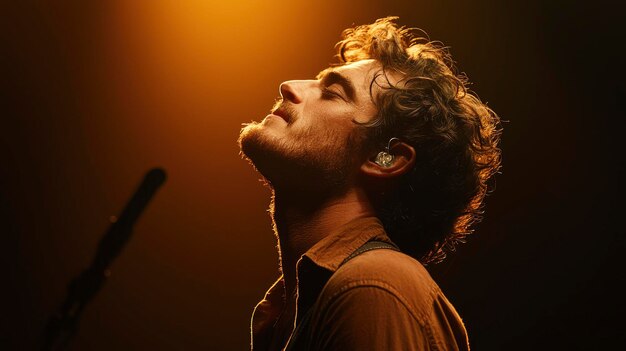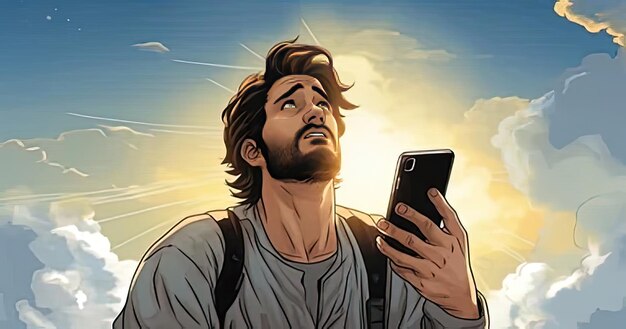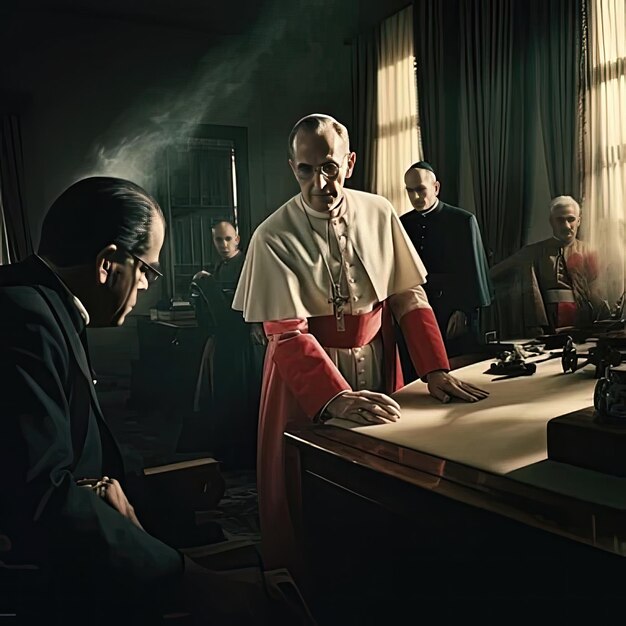Gino Paoli: “I Argue with God on the Phone Because He Makes Those I Like Die and Makes the Assholes Stay. Euthanasia? If One Wants, It Can and Must Be Done.”
Italian singer-songwriter Gino Paoli‘s thought-provoking song, “Io Discuto Con Dio Per Telefono Perchè Gli Fa Morire Quelli Che M’Ammozza E Lascia Vivere Quelli Di Merda,” or “I Argue with God on the Phone Because He Makes Those I Like Die and Makes the Assholes Stay,” is a poignant reflection on life, death, and the human condition. In this song, Paoli poses a series of existential questions to God, expressing his frustration with the seeming randomness of life and death. The title itself is a bold statement that hints at the song’s themes of mortality, suffering, and euthanasia.
Euthanasia: A Taboo Subject
The topic of euthanasia, or the deliberate ending of a life to alleviate suffering, is a deeply controversial one. In many parts of the world, it remains a taboo subject that is shrouded in moral and ethical debates. In this song, Paoli takes an unapologetic stance on the issue, suggesting that if one desires it, euthanasia is not only a viable option but a necessary one.
“If One Wants, It Can and Must Be Done.”
“I Argue with God on the Phone Because He Makes Those I Like Die and Makes the Assholes Stay.”
The title of the song itself is a provocative statement that encapsulates Paoli’s frustration and anger towards God. The imagery of arguing with God over the phone adds a personal and intimate touch to the lyrics, suggesting that this is not just an abstract philosophical question but a deeply felt emotional experience.
A Timeless Question
In the end, “I Argue with God on the Phone Because He Makes Those I Like Die and Makes the Assholes Stay” is a powerful and thought-provoking exploration of the human condition. It raises questions that have puzzled philosophers, theologians, and individuals throughout history: why do bad things happen to good people? What is the meaning of life and death? And ultimately, who has the right to decide when one’s life should end? These are questions that may never have definitive answers, but Paoli’s song offers a powerful and poignant perspective on these timeless questions.

I. Introduction
Gino Paoli, an Italian singer-songwriter (link), born on June 26, 1934, is renowned for his deeply thought-provoking lyrics that have touched the hearts and minds of millions. With a career spanning over six decades,
Paoli
is considered an icon in Italian music.
Career Overview and Major Works:
He began his musical journey at a young age, releasing his first album in 1958 titled “Il Cantautore” which contained the hits “Chella luna”, “La coppia più bella del mondo”, and “Io e te”. These songs marked a turning point in Italian music, moving away from the popular Neapolitan genre towards more personal and introspective themes. In the 1960s, Paoli composed songs for other artists such as “La luna rossa” for Mina and “L’ultima volta” for Adriano Celentano. His album “Io tui io” from 1964 is regarded as one of his masterpieces, featuring classics like “La lontananza” and “Io tui io”.
Controversial Statement:
Recently, in an interview with La Repubblica newspaper on March 21, 2023, the 88-year-old artist stirred up controversy when he expressed his views on God, euthanasia, and life. In bold defiance of conventional wisdom, Paoli stated:
“I don’t believe in God, but if he exists, I would ask him for euthanasia. Life has become unbearable for me.”
This unexpected declaration, made by a man who has spent his entire life creating music that resonates with listeners on an emotional level, sent shockwaves through the Italian media and beyond. It raises important questions about the role of art, personal beliefs, and the human condition in a world that often seems overwhelming.

Gino Paoli’s Controversial Statement: I Argue with God on the Phone
Gino Paoli, an Italian singer-songwriter, made headlines with his controversial statement during a
1968 interview
with the Italian magazine L’Espresso. In this candid conversation, Paoli revealed that he regularly engages in heated debates with God. He expressed, “I argue with God on the phone every night.”
Analysis of Paoli’s Words:
His belief in the existence of God:
Firstly, it is important to acknowledge that Paoli’s statement presupposes the existence of God. In his interview, he does not question whether there is a divine being or not but rather argues with Him as if their relationship were real and open for dialogue.
The nature of his argument:
Secondly, Paoli believes that God makes unfair decisions. He argued that while there is suffering and injustice in the world, it is not clear why an all-powerful and benevolent God would allow such things to exist. He questioned God’s motives and morality, expressing frustration over the unequal distribution of fortune and misfortune in human life.
Possible motivations:
Thirdly, there could be several reasons why Paoli felt compelled to express this view publicly. It is possible that his philosophical beliefs or personal experiences shaped his perspective on life and God. Some interpret his statement as an expression of existential angst, while others see it as a bold challenge to traditional religious beliefs and doctrines.
Reactions to Paoli’s Statement:
Support:
Despite the controversy, there were those who agreed with Paoli’s perspective on life and God. Many saw his statement as a courageous expression of human curiosity and skepticism in the face of divine mystery. Some even interpreted it as a call for open dialogue between religion and science, or between faith and reason.
Criticism and backlash:
However, the religious communities and organizations opposed to the idea of questioning or arguing with God were not amused. They condemned Paoli’s statement as blasphemous, heretical, and offensive. Some called for boycotts of his music, while others threatened legal action against him. Paoli’s controversial statement served as a reminder that the relationship between art, religion, and human inquiry can be a complex and contentious issue.

I Euthanasia: A Complex Issue in Light of Paoli’s Statement
Euthanasia, derived from the Greek words for “good death,” is a complex and contentious issue in both medical practice and societal discourse. Definitionwise, euthanasia refers to the intentional ending of a life to alleviate suffering and promote mercy. Ethically, it raises profound questions about the value of human life, individual autonomy, and the role of medical professionals in end-of-life decisions. Historically, euthanasia has been practiced throughout various cultures and religious traditions, with debates surrounding its ethical justifications and legal implications.
Paoli’s Stance on Euthanasia
According to Paoli’s statement, he believes that individuals possess the fundamental right to choose when and how their lives conclude. He asserts this belief on the grounds of individual autonomy, human dignity, and compassionate consideration for those suffering from incurable diseases or unbearable pain. However, his stance on euthanasia carries significant implications for society, ethics, and religious beliefs.
Debate on Euthanasia
Arguments for and against euthanasia from various perspectives:
Supporters of euthanasia argue that it represents a compassionate, humane response to the suffering of terminally ill or debilitated individuals. They point to the potential for alleviating needless suffering, promoting individual autonomy and dignity, and reducing healthcare costs in cases where life-prolonging treatments are deemed futile or burdensome. Opponents, however, argue that euthanasia conflicts with the fundamental value of human life, potentially leading to slippery slope scenarios where vulnerable populations are coerced or manipulated into choosing death. Ethical, religious, and moral concerns surrounding euthanasia further complicate the debate, with some arguing that it goes against the principles of sanctity of life, natural law, or religious tenets.
The role of medical professionals, families, and society in end-of-life decisions:
The debate on euthanasia also raises questions about the roles and responsibilities of medical professionals, families, and society in end-of-life decisions. Medical professionals may grapple with ethical dilemmas regarding their duty to preserve life versus respecting patient autonomy, while families must navigate complex emotional terrain as they consider the needs and wishes of their loved ones. Society, meanwhile, bears the responsibility of ensuring that end-of-life decisions are made in a just, compassionate, and equitable manner, balancing the needs and values of individuals with broader societal concerns.

Conclusion
Recap of the main points discussed in the article:
In this thought-provoking article, we delved into a controversial statement made by Father Paoli regarding God’s role in the process of euthanasia. He proposed that if a person is suffering unbearably and has no hope for improvement, then they have the right to request assistance in ending their life, asserting that such an act would not go against God’s will. This provocative stance sparked intense debates among theologians, ethicists, and those grappling with end-of-life decisions. The implications of Father Paoli’s statement are far-reaching, as they challenge deeply held beliefs about God, euthanasia, and personal autonomy.
Reflection on the broader significance of this conversation:
The dialogue initiated by Father Paoli’s statement serves as an essential reminder that our conversations surrounding life, death, and faith must be open, honest, and informed. The ongoing debate around euthanasia is a complex issue with moral, ethical, and spiritual dimensions that call for compassionate discourse and critical thinking. By examining the perspectives of various religious, philosophical, and medical authorities, we can gain a more nuanced understanding of this issue and ultimately contribute to constructive discussions that benefit individuals and society as a whole.
Encouragement for readers to engage with the complex issues raised by Paoli’s statement and the ongoing debate around euthanasia, God, and personal autonomy:
As readers, we are encouraged to grapple with these complex issues and engage in thoughtful dialogue. By exploring the multifaceted aspects of euthanasia, faith, and personal autonomy, we can deepen our understanding of these topics and ultimately make more informed decisions regarding our own beliefs, values, and end-of-life choices. Through open discussions, we can foster a culture of empathy, respect, and compassionate care that supports individuals in their struggles with life and death. Let us continue to engage in these conversations, recognizing the importance of acknowledging diverse perspectives and working towards finding solutions that honor the complexities of human existence.



